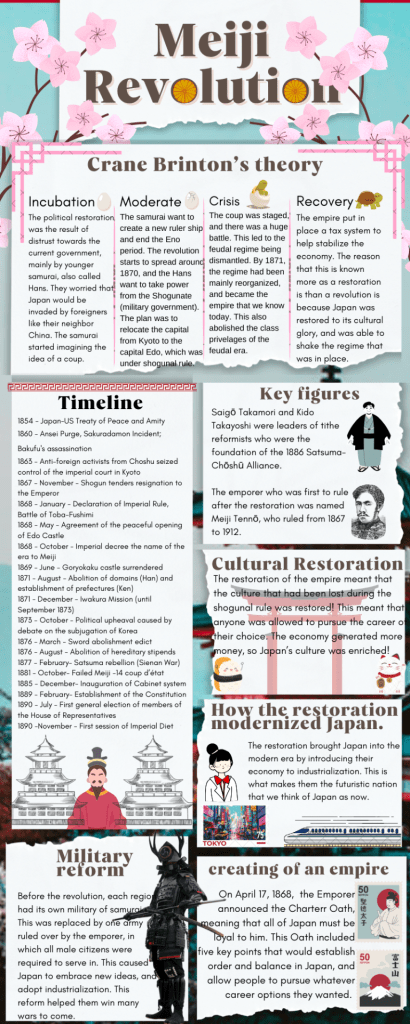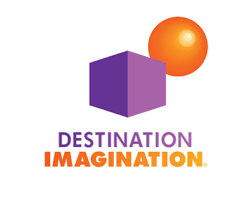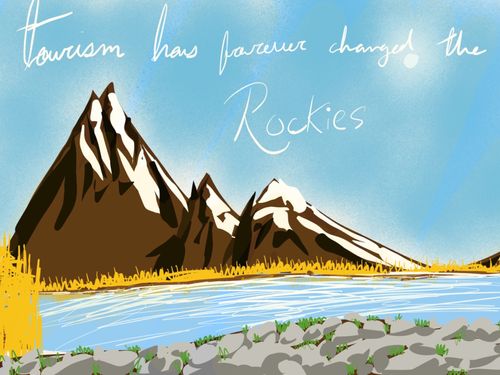“Thank you for coming to my presentation of learning. I am the expert on my own learning. I am also responsible and accountable for my own learning. You can expect me to give an honest evaluation of my progress. We will discuss my strengths and opportunities for growth. Thank you in advance for listening and for offering feedback that I can use to improve as a learner.”
This is the pledge that we are required to state at the beginning of our presentation. It serves as an introduction to what we will be presenting during our TPOL. These conferences are specifically designed to allow us to reflect on our learning, while also providing our parents and teachers with an update on our progress. Over the past year, I’ve grown a lot as a PLP learner, but also as a person. This is a program that lets us take responsibility of our own learning, and really allows us to thrive. I’ve learned a lot about myself and others, as well as gained a bunch of new skills that I can apply not just to school, but to the rest of my life. In this presentation, I will show what exactly I’ve been learning in PLP, and that I’m ready for whatever gets thrown at me next. Lets get into it!
Resilience
Throughout this past year, we’ve worked on a number of different projects that bore new skills and chances to collaborate with classmates. One example of this was “Rise of the Frankenstuffies.” In this project, we created fictional characters that were quite unique in origin. This project took a lot of resilience and time management to achieve, as it was a multi tiered feat. We began by physically constructing our stuffy, and giving it a history and personality. I’d never sewn a stuffed animal before, so this was an opportunity to gain new skills. Next, we wrote a short story, which would be turned into a video later. Mine was about about a failed lab experiment who works with a group of activists to save his friend from the evil scientists.
The construction of the video for this project was difficult not only in the amount of time it took, but also because the animation tools we had access to were janky and tedious. Despite all of this, I feel like my resilience is the reason I was able to complete this project. I definitely learned a lot through this process, mostly that you can’t leave everything last minute and expect it to work out.

Citizenship
The second project that I’d like to touch on was our unit on World War One. This was our most recent project, and easily my favourite one of this semester. Throughout this project we learned all about the events of the First World War, as well as how it’s shaped our country and it’s citizens. Because of this, I feel that it relates most to the citizenship competency. By learning about the history of our country, we learn more about ourselves. One of the main motivations for soldiers is a feeling of Connection to their country, also known as nationalism. We did an entire project on this topic, which you can find on my blog.
The actual creation of the comic was difficult not because of a lack of ideas, but because of a lack of time. We were essentially given a week to create all of the art for and construct our final comic before our exhibition. We had already created our storyboards at this point, but with a twenty panel minimum, we were really rushed for time. I had to spend essentially all of my free time working on this, and although I was able to create a truly spectacular result, I believe that this was a time management issue that was not a fault of mine. I learned from this project that even if you manage your time properly, you still have to make sacrifices to combat unforeseen conditions that are out of your control. Still, I believe that my dedication to this project gave me a sense of citizenship due to my relation to my peers’ struggles. I feel like this shared experience helped to bring us closer together as a class.

Outside of school time management
Lastly, I would like to talk about Destination Imaginaiton, and how time management was our key to success. You probably already know what DI is. A big fancy competition with performances and challenges to face. However, this event has an incredible amount of unseen effort and time was spent producing our final product. My group was focused on engineering, and we were tasked with building a catapult, and encorporating it into a story. Because DI stretched beyond the time we had in class, we ended up spending a lot of our free time on the project. Because we hadn’t managed our time properly, we struggled with our first DI competition.
After the disaster that was our first attempt in learning, or FAIL, we decided to regroup and recreate our project. We were more organized our second time around, and the pressure to do well was greater. I took initiative in bringing our group together outside of school time. It was a bit like herding cats, but I believe that we were able to achieve a stronger result after putting more time into our work.

To wrap up, I would like to talk about my overall growth this year. Grade nine was full of all kinds of new experiences, people, and projects. Like any year, it had it’s ups and downs, but I feel like I’ve come out of it a changed person. It’s scary to me to believe that in a few short months I will be re entering this school as a grade ten, but so is the way of the world. I believe that I still have a lot to learn, and a lot of new experiences to gain. Thank you for listening, and have a wonderful day!

 Throughout the course of the year, we’ve done numerous projects that have all been designed to give us new skills and opportunities to collaborate with others. A great example of this is a project called metaphor machines. This project, like many others, was a huge challenge of our group’s resources and mental capacity, and really made us use our critical thinking skills to come up with new ideas and strategies to get our machine to work.
Throughout the course of the year, we’ve done numerous projects that have all been designed to give us new skills and opportunities to collaborate with others. A great example of this is a project called metaphor machines. This project, like many others, was a huge challenge of our group’s resources and mental capacity, and really made us use our critical thinking skills to come up with new ideas and strategies to get our machine to work. a Humanities project in which we learned all about the influential Canadian figure Louis Riel. Riel was a Métis leader, as well as a scholar and a resolute. His story is an important yet tragic example of someone being sacrificed for the greater good.
a Humanities project in which we learned all about the influential Canadian figure Louis Riel. Riel was a Métis leader, as well as a scholar and a resolute. His story is an important yet tragic example of someone being sacrificed for the greater good.
 Louis Riel, and how he’s been portrayed throughout history. The Métis are a group of people with mixed ancestry that still reside in Canada today. Sadly, they were not very well liked by the local indigenous or the settlers, which led to feuds that would eventually become bigger problems. The relationship between the Métis and the settlers has been complex and difficult due to the lack of respect that the colonizers had for the balance that existed before they started to get too greedy. This seems to be a similar issue that the indigenous people had with the Métis, as they saw them as colonizers trying to take their land and resources.
Louis Riel, and how he’s been portrayed throughout history. The Métis are a group of people with mixed ancestry that still reside in Canada today. Sadly, they were not very well liked by the local indigenous or the settlers, which led to feuds that would eventually become bigger problems. The relationship between the Métis and the settlers has been complex and difficult due to the lack of respect that the colonizers had for the balance that existed before they started to get too greedy. This seems to be a similar issue that the indigenous people had with the Métis, as they saw them as colonizers trying to take their land and resources. We were first introduced to the concept of revolutions by our first project, which was based around the book “Animal Farm” by George Orwell. We read this book as a class, and had multiple discussions about the author’s intent and the hidden meaning behind the events in the book. The story itself is actually a metaphor for the Russian revolution, and revolves around a farm on which the animals stage a rebellion and and take new leadership. Unfortunately, the pigs begin to abuse their power, and eventually lead the farm to downfall. This represents how after a revolution, affairs often return to the way they were before, with slight changes.
We were first introduced to the concept of revolutions by our first project, which was based around the book “Animal Farm” by George Orwell. We read this book as a class, and had multiple discussions about the author’s intent and the hidden meaning behind the events in the book. The story itself is actually a metaphor for the Russian revolution, and revolves around a farm on which the animals stage a rebellion and and take new leadership. Unfortunately, the pigs begin to abuse their power, and eventually lead the farm to downfall. This represents how after a revolution, affairs often return to the way they were before, with slight changes. This is a picture of our finished product.
This is a picture of our finished product. recall the eye opening moments that impacted me and my class. Let me begin by explaining the purpose of our retreat. It was meant to give us a new perspective on the people around us, as well as ourselves. We were meant to gain leadership skills and bond as a class, and understand that our actions have impacts. We know that these are all important skills to have within school, but we were also asked to think about how we can apply these skills to our everyday lives.
recall the eye opening moments that impacted me and my class. Let me begin by explaining the purpose of our retreat. It was meant to give us a new perspective on the people around us, as well as ourselves. We were meant to gain leadership skills and bond as a class, and understand that our actions have impacts. We know that these are all important skills to have within school, but we were also asked to think about how we can apply these skills to our everyday lives.
 In the end, this trip was a lot of fun because I got to experience it with my friends. The teachers and staff were very supportive, as well as all of our classmates. We got to wrap up our trip with an awesome dance party, where we could let all of our troubles go. I also feel like I have to include this, or the PLP teachers will be mad: The food was amazing.
In the end, this trip was a lot of fun because I got to experience it with my friends. The teachers and staff were very supportive, as well as all of our classmates. We got to wrap up our trip with an awesome dance party, where we could let all of our troubles go. I also feel like I have to include this, or the PLP teachers will be mad: The food was amazing. The goal of our Alberta trip was to find an answer to the driving question, “how has the geography of the west shaped who we are?” Our big project for this trip was all about how we’ve changed the geography of the west, but also how it’s changed us.
The goal of our Alberta trip was to find an answer to the driving question, “how has the geography of the west shaped who we are?” Our big project for this trip was all about how we’ve changed the geography of the west, but also how it’s changed us.
 Another staple of the Rocky Mountains is the Lake Louise. People come from all over the world to see the famous lake, and it even has its own chateau for people to stay at while they take in the view. This was a very important stop in our trip, as the geography of the surrounding area was literally changed so that humans could have a more pleasant experience. People used to just come to see the lake, but after the CPR was put in, it became a whole destination.
Another staple of the Rocky Mountains is the Lake Louise. People come from all over the world to see the famous lake, and it even has its own chateau for people to stay at while they take in the view. This was a very important stop in our trip, as the geography of the surrounding area was literally changed so that humans could have a more pleasant experience. People used to just come to see the lake, but after the CPR was put in, it became a whole destination.

 Hello, and welcome back to another blog post! In our latest project, which was called “Using The Moving Image To Tell A Story,” we examined how we can use the moving image to tell a story. This project was connected to our Rocky Mountain field study, and the assignment for this project was multiple videos that related not just to our driving question in maker, but also our humanities project. Our project in humanities was about how the geography of the west has shaped us, and in it we learned quite a bit about the geography the Rockies.
Hello, and welcome back to another blog post! In our latest project, which was called “Using The Moving Image To Tell A Story,” we examined how we can use the moving image to tell a story. This project was connected to our Rocky Mountain field study, and the assignment for this project was multiple videos that related not just to our driving question in maker, but also our humanities project. Our project in humanities was about how the geography of the west has shaped us, and in it we learned quite a bit about the geography the Rockies. Our final video we actually started after we got back from the trip, which gave us the most time to film and edit it. This was the “at home video challenge,” and it was all about what inspires us! My video was largely about how life isn’t always perfect, but it’s the good things that keep us going! I talked a lot about how sports always keeps me motivated, and my family and school always inspire me to be a better person. This video took a long time to edit, because I wanted it to really reflect who I am. I learned a lot about myself through this video, as well as realizing who I want to become. I feel like this was a perfect way to wrap up our project!
Our final video we actually started after we got back from the trip, which gave us the most time to film and edit it. This was the “at home video challenge,” and it was all about what inspires us! My video was largely about how life isn’t always perfect, but it’s the good things that keep us going! I talked a lot about how sports always keeps me motivated, and my family and school always inspire me to be a better person. This video took a long time to edit, because I wanted it to really reflect who I am. I learned a lot about myself through this video, as well as realizing who I want to become. I feel like this was a perfect way to wrap up our project!